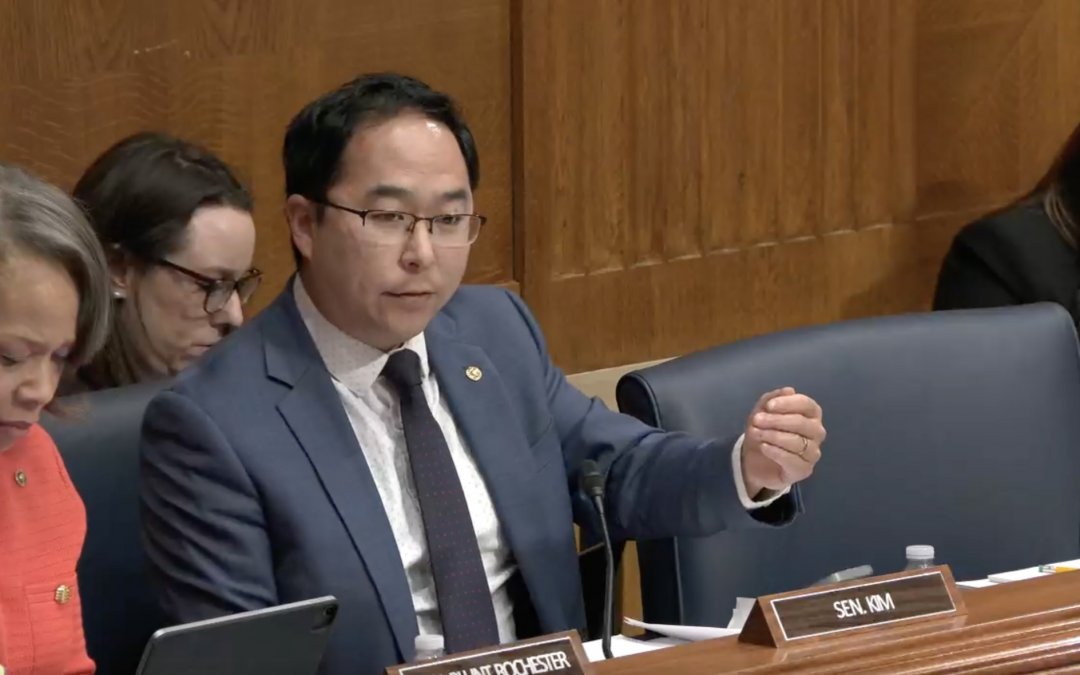WASHINGTON — At a Senate Health, Education, Labor and Pensions committee hearing on biotechnology and U.S. competitiveness, lawmakers and witnesses warned that America risks losing its industry dominance.
China now accounts for 30% of global clinical trial starts, nearly matching the U.S. share of 35% and has expanded its global drug development pipeline eightfold, said John F. Crowley, president and CEO of the Biotechnology Innovation Organization.
Witnesses also highlighted systemic barriers to U.S. innovation, including outdated Food and Drug Administration (FDA) regulations, cuts to National Institutes of Health (NIH) funding, FDA layoffs and the increasing offshoring of early-stage clinical research.
“When developers are looking outside of the country for early-stage clinical work — we need to pick up our game,” Committee Chairman Sen. Bill Cassidy (R-La.) said in his opening statement.
Lowell Schiller, a scholar at the University of Southern California and a former FDA and Senate HELP committee staffer, advocated for streamlining FDA regulations to make the drug approval process more efficient.
Schiller gave the example of rare disease treatment developments, where traditional drug trials that involve randomized patients aren’t always possible due to small patient populations. In those cases, he suggests, the FDA could use alternative approaches such as relying on historic or real-world data.
Both Schiller and Crowley told the committee that offshoring parts of drug development — from early-phase clinical trials to manufacturing — is weakening U.S. leadership in the industry.
Crowley advocated for more investment in biotech startups, whereas Schiller said the FDA can make operating in the U.S. more globally competitive by adapting manufacturing regulations to current technology.
“With reforms like these, we can ensure that our country’s mature regulatory system continues to instill confidence in novel products and remains a competitive advantage for the United States,” Schiller said.
But Dr. Reshma Ramachandran, assistant professor of medicine at Yale University, sounded a warning about the impact of staffing cuts on the FDA’s ability to function effectively.
In early April, approximately 3,500 employees were laid off at the FDA as part of a larger workforce reduction in the Department of Health and Human Services by the Trump administration.
“The recent firing and attrition of more than 20% of the FDA workforce, including over 900 scientists and technical experts … threatens the U.S.’s ability to continue critical regulatory operations and implement solutions that deliver a sustainable supply of treatments that work,” Ramachandran said.
Beyond regulatory reforms, witnesses emphasized the importance of federal research funding to NIH and academic institutions. Dr. Aaron Kesselheim, a Harvard Medical School professor, noted that all 42% of recent new biological drugs had late-stage reliance on public funding. He also added that all FDA-approved gene therapies can be traced back to federally supported academic institutions or their spinoffs.
But the health budget for 2026 includes a 40% cut to NIH. Kesselheim urged the Congress to revert to the previous level of research funding.
“Congress must reestablish the normal flow of research funding before the U.S. scientific establishment in a new generation of innovative biotechnology treatments is irreparably damaged,” Kesselheim said.
Sen. Patty Murray (D-Wash.) reinforced this concern, noting that the Trump administration terminated $2.3 billion in NIH funding and canceled roughly 500 grants.
Turning the focus back to global dominance, Sen. Andy Kim (D-N.J.) said the committee and the nation must embrace the urgency of the competition it faces from China. Kim added that the innovative use of artificial intelligence could be key to accelerating drug research.
Crowley underscored that while the U.S. is currently a global leader in biotechnology, the tide may shift in two to three years.
“We need to act boldly and we need to act today,” Crowley. “We believe in two to three years, we can lose this.”

